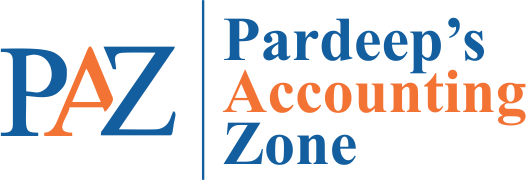The Fundamentals of Accounting course at Pardeep’s Accounting Zone offers a comprehensive introduction to the core principles, concepts, and practical procedures essential for all aspiring accountants.
Key Modules and Topics
-
Introduction to Accounting:
Explains what accounting is, its role in business, and the characteristics and concepts that guide professional bookkeeping and reporting. Includes an overview of forms of organizations and users of accounting information. -
Accounting Principles and Concepts:
Covers foundational principles, concepts, and conventions such as consistency, reliability, accruals, and the accounting equation (Assets = Liabilities + Equity). -
Capital vs. Revenue Transactions:
Students learn to distinguish between capital and revenue expenditures as well as receipts—a crucial skill for accurate financial statement preparation. -
Accounting Cycle:
Teaches the full accounting cycle, including analysis of transactions, double-entry bookkeeping, charts of accounts, journalizing, posting to ledgers, and creating a trial balance. -
Books of Original Entry:
Covers common source documents and books, such as the journal, cash book, bank book, as well as special purpose subsidiary books (purchase, sales, petty cash, etc.). -
Adjustment Entries & Error Rectification:
Explains adjustment processes at end-of-period, including correcting errors and making closing entries for accurate reporting. -
Depreciation Methods:
Covers techniques for calculating depreciation, mainly the straight-line and diminishing balance methods, and their impact on asset values. -
Preparation of Final Accounts:
Teaches students to prepare and understand income statements, balance sheets, and financial statements for sole proprietorships and not-for-profit organizations. -
Bank Reconciliation:
Practical training in reconciling bank statements and cash books, an essential function for financial control and error identification.
Accounting for Special Transactions:
Includes consignment, joint ventures, and bills of exchange. Students learn how these transactions are recorded and reported.
Learning Outcomes
By the end of the course, learners:
-
Understand and explain the conceptual framework of accounting
-
Record and categorize basic business transactions using journals and ledgers
-
Prepare essential financial statements
-
Carry out basic reconciliation and error correction
-
Comprehend the theoretical and procedural aspects of accounting, preparing them for further study or practical application.
- Understand and explain the conceptual framework of accounting.
- Record and categorize basic business transactions using journals and ledgers.
- Prepare essential financial statements.
- Carry out basic reconciliation and error correction.
- Comprehend the theoretical and procedural aspects of accounting, preparing them for further study or practical application..

